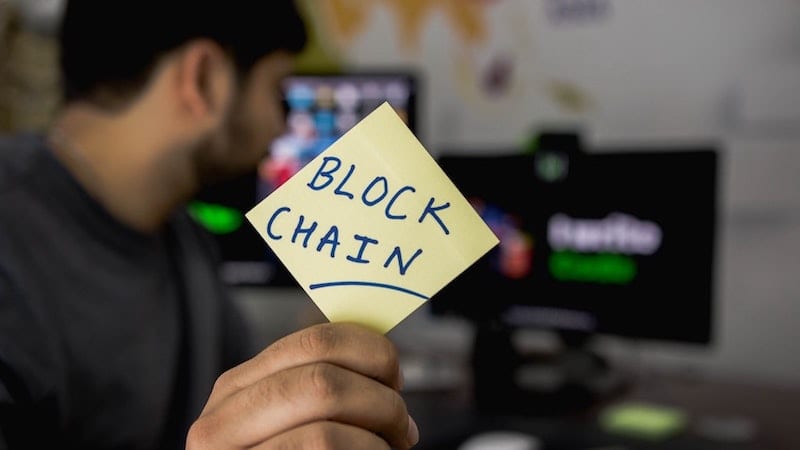The blockchain technology is an innovative technology that has caused disruptions in various industries across different sectors, and even though it is not a mainstream technology yet, adoptions have begun, and there have been notable improvements where the technology has been applied. However, there are some misconceptions about blockchain that should be clarified, in order to get a better understanding of what it really is.
- It is not Cryptocurrency – Often times, people make the mistake of referring to blockchain as bitcoin or cryptocurrency, it is a misconception because cryptocurrency and digital assets are just some of the applications of the blockchain technology.
- It is not a product – This is another misconception, blockchain technology is not a product, as is perceived by many, but rather it is a structure or an architecture that can be applied in building various business solutions.
- It is not an independent business network – The blockchain technology is not a standalone business network. The application of blockchain in businesses is based on the fact that there is an existing business network and framework.
- It is not a replacement for secure messaging – At the moment, there are several secure messaging services that are really effective and efficient; however, while the blockchain technology is secure, it does not replace secure messaging, rather it can be applied as one of the security protocols in secure messaging solutions.
- It is way beyond being only about currency – A lot of people out there are of the opinion that the blockchain technology is just for currency transactions. This is a misconception because there are so many applications and use cases of the blockchain that goes beyond just currency. It can be used as a trusted audit channel for ownership of both intangible and tangible assets.
The Future of Blockchain and Crypto
Blockchain has been discovered to bring solutions to various problems facing a lot of systems. Many of these problems stem from the fact that the systems are centralized, and as such, there is a lack of transparency, too many interferences from third parties, lax in security, costly transactions, among other problems. Blockchain which is decentralized by default seeks to correct these irregularities, and at the moment it has been integrated into several business systems across industries. Some actual use cases of the blockchain technology in different industries, and in our day-to-day activities, include the following:
Banking and Payments
The financial industry is one sector where the application of blockchain has brought about some positive changes for individuals, businesses, and even financial institutions. We cannot overemphasize the fact that the traditional banking system has a lot of challenges to deal with, including its bureaucratic system which has no impact on customers, the delay in cross border transactions, the high transaction fees, lack of access to loans, high-security risks, etc. With the adoption of the blockchain, capital markets can get some restructuring, cross-border transactions can happen seamlessly, among other solutions.
At the moment, some banks and financial institutions have begun to adopt the blockchain technology to facilitate secure and seamless transactions, and they include, Bank of America, Federal Reserve System, Australian and New Zealand Bank (ANZ), etc.
Originally, banks were against the use of the blockchain technology, and they had their reasons, just the same way the internet was not accepted by many when it first came to the public, it is good to know that they have had a rethink and seen that the integration of the blockchain technology into their business systems, actually proffer high-end solutions to the irregularities faced by the industry.
Contracts
Contracts are a very good way of doing business, but there are intricate parts to it, and a lot of money gets paid to ensure there are lawyers/brokers around who will prepare the necessary documents to be signed. The problem, however, lies in the fact that one of the parties could default in delivery or payments, which in turn can lead to disputes and lawsuits. Have you heard about ‘Smart Contracts’? Yes, Smart Contracts has taken contracts to a whole new level, as with this automated contracting system, the need for a lawyer or broker is eliminated, and so is the cost of hiring them. Furthermore, depending on how the Smart Contract program is written, it can be used to ensure no party defaults on payments, by holding the payments until all stated criteria are met. This has been applied to different industries including real estate, freelance services, and platforms, etc.
Insurance
The insurance industry is not left out of the disruptions caused by the integration of blockchain in their operational systems. The industry currently faces a lot of challenges including false and fraudulent claims, lack of transparency, dealing with big data, etc. Every day, the world keeps adopting the use of more digital innovations, and the insurance industry cannot afford to be left behind. With the integration of the blockchain technology into the system, security can be improved, since the blockchain technology is immutable, and can be used to verify if customers are authentic or not. Furthermore, with the issue of connected devices and big data, the application of the blockchain technology can assist in the proper management of big data and records. Smart contracts can also be included to cut costs, and ensure there are no defaulters when carrying out transactions. The application of the blockchain technology to the insurance industry brings a plethora of possibilities in improving the system and solving the irregularities plaguing it.
Contract execution
The blockchain-based platform Ethereum happens to be a “self-contract execution” platform. This means that the platform allows users to reach various agreements and when such agreements have been approved by the parties, the network allows for the tokens or funds to be sent to the needing party. The blockchain technology can be used to also execute contracts. The technology can be used to improve restaurant services, it can give waiters the authority to execute transactions. As soon as the meal gets to the table, the specific amount is sent to the account of the restaurant. The blockchain technology will surely improve how the restaurant and other online and offline merchants will function.
Identity theft
In 2017 alone, over 16 million identity theft cases were reported. This is because the internet has made it difficult to differentiate various individuals as some have put up misleading identities. The blockchain technology can be used to solve this problem. Its decentralized nature will ensure that all data is recorded in a secure and permanent ledger. Also, digital identities can be set up for everyone which would track every individual. Solving this problem will reduce online scams.
Real Estate industry
There is no current record that shows the date and payment documents for properties that are over 10 to 20 years old. Even if there is, accessing them would be a herculean task. The blockchain technology can be used to solve this problem. It can provide real estate dealers with accurate information of properties that are over 30 years old.
Entertainment industry
The entertainment industry globally has been faced with the piracy issue. This problem has existed for a long time and different measures have been put in place to solve this problem but little has been done. The blockchain technology can be used to solve this problem. It will ensure that each CD or book bought is signed to one individual and with the help of the Cryptographic technology, individuals cannot duplicate them.
Governance
The Internal Revenue Service (IRS) loses millions to refund thefts each year. When the identity of individuals is stolen, their refunds are claimed. Also, election fraud has become a global issue that must be eradicated. The blockchain technology can be used to solve these problems mentioned above. The blockchain will be used to record the detail of individuals and also will be used to conduct elections that are credible and free from fraud.
The blockchain technology has not gotten there yet as some people would like to believe, it is still on its way to mainstream mass adoption, and that is because it has features that can serve as ideal solutions to various problems in the different industries and sectors. The future of blockchain looks bright, as more and more businesses have already begun to adopt the technology in their business systems, and already there have been so many positive results.






